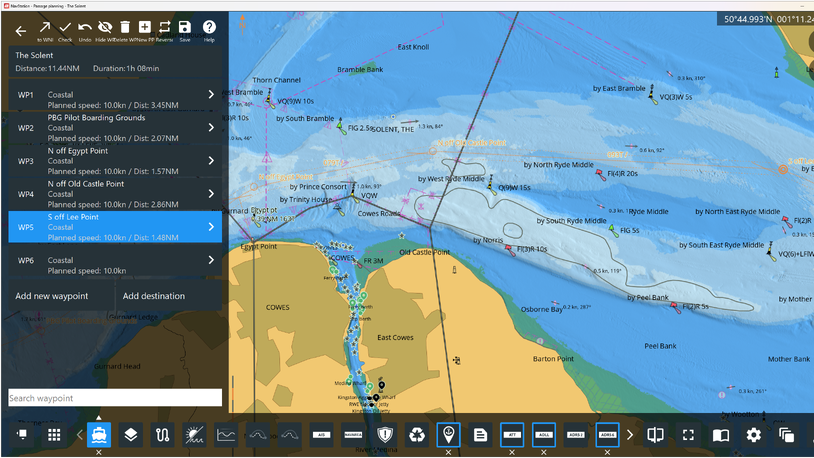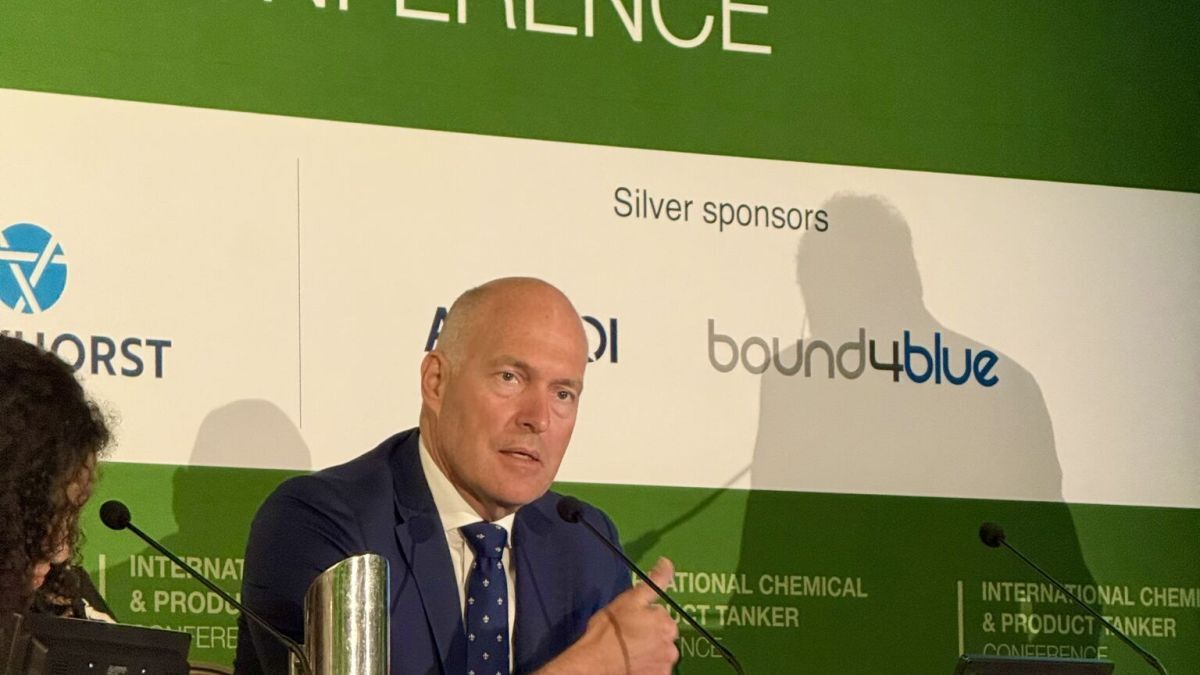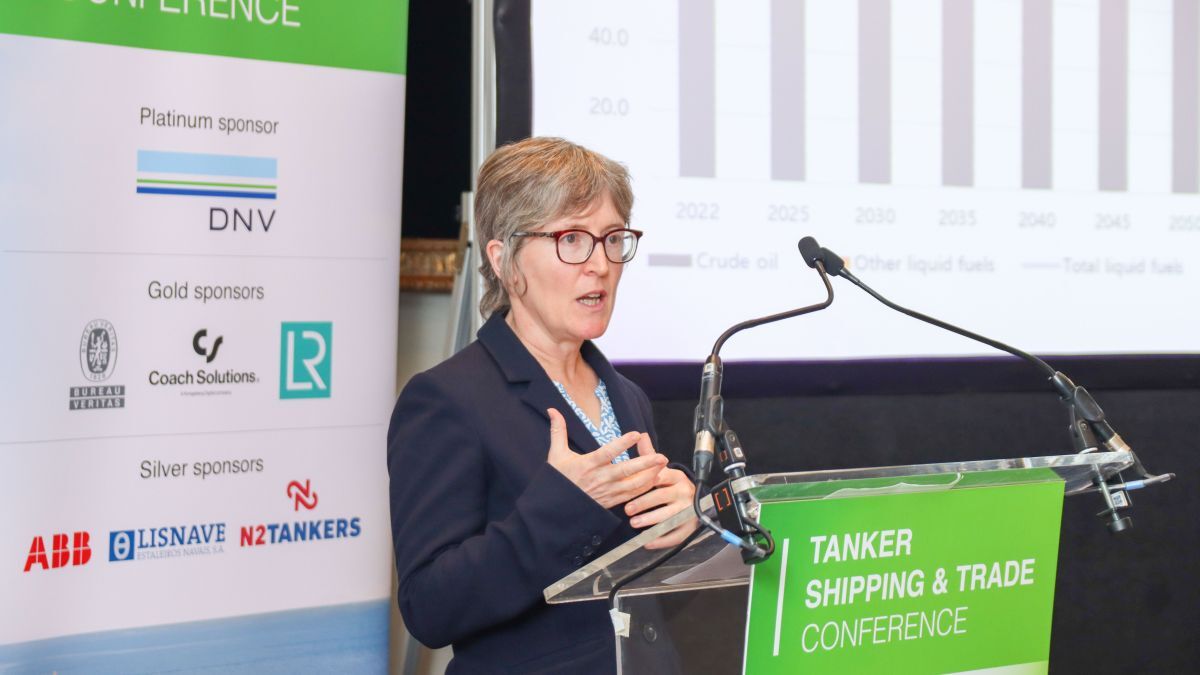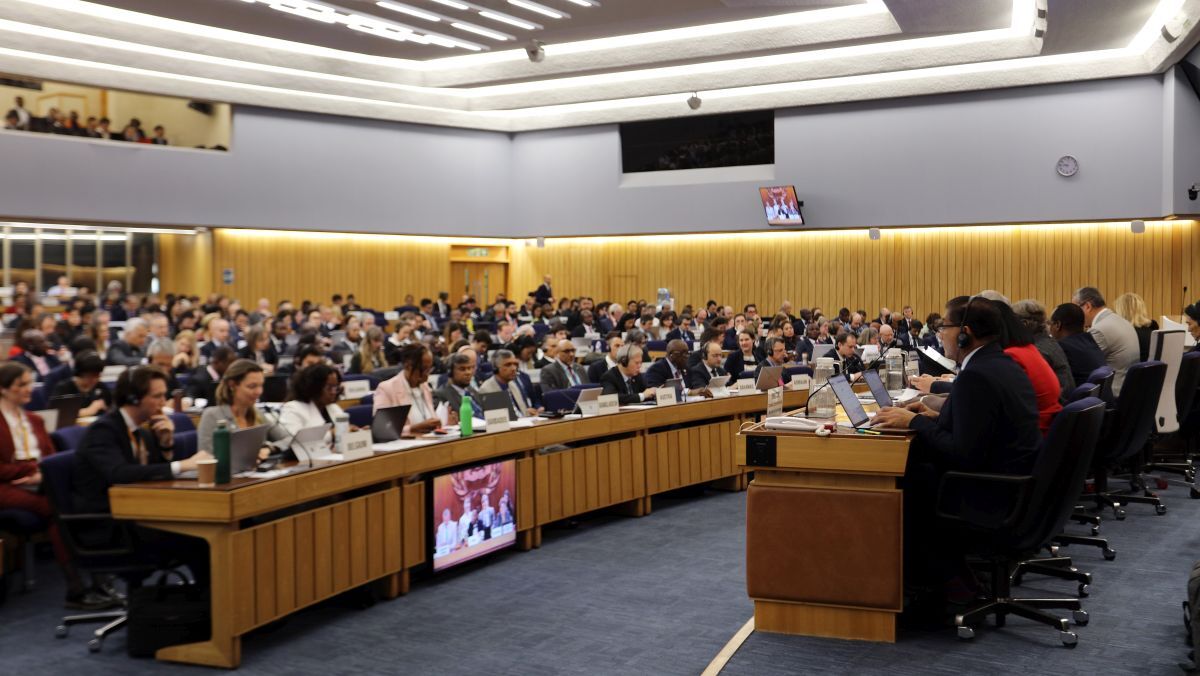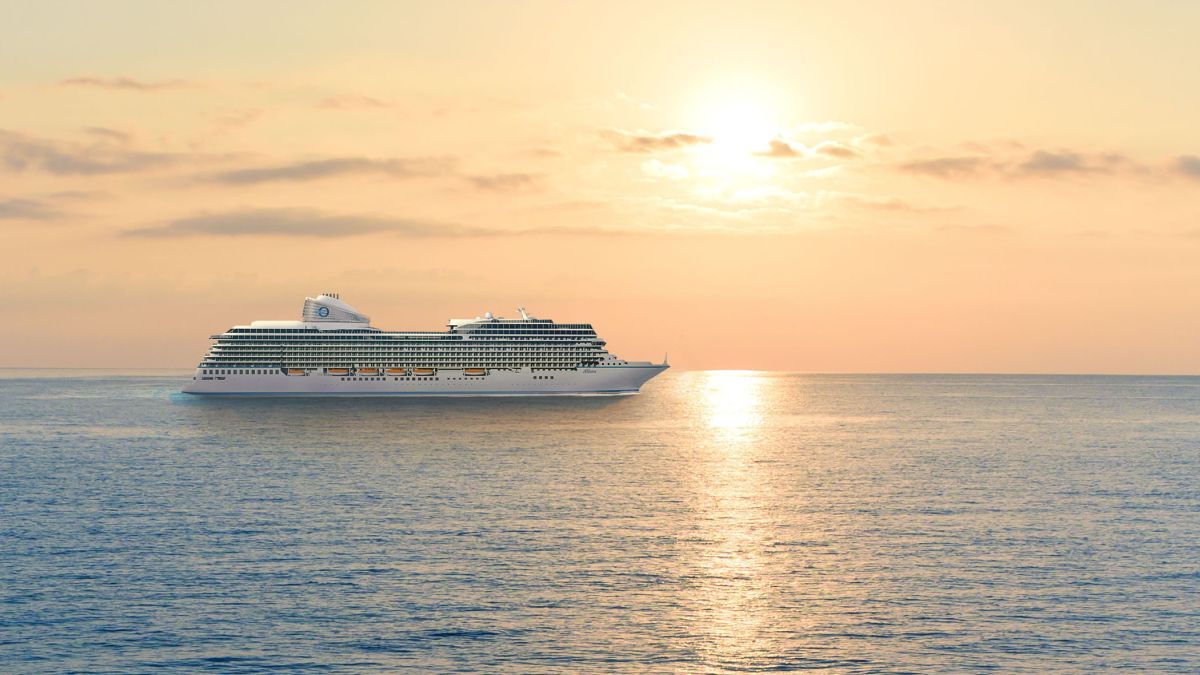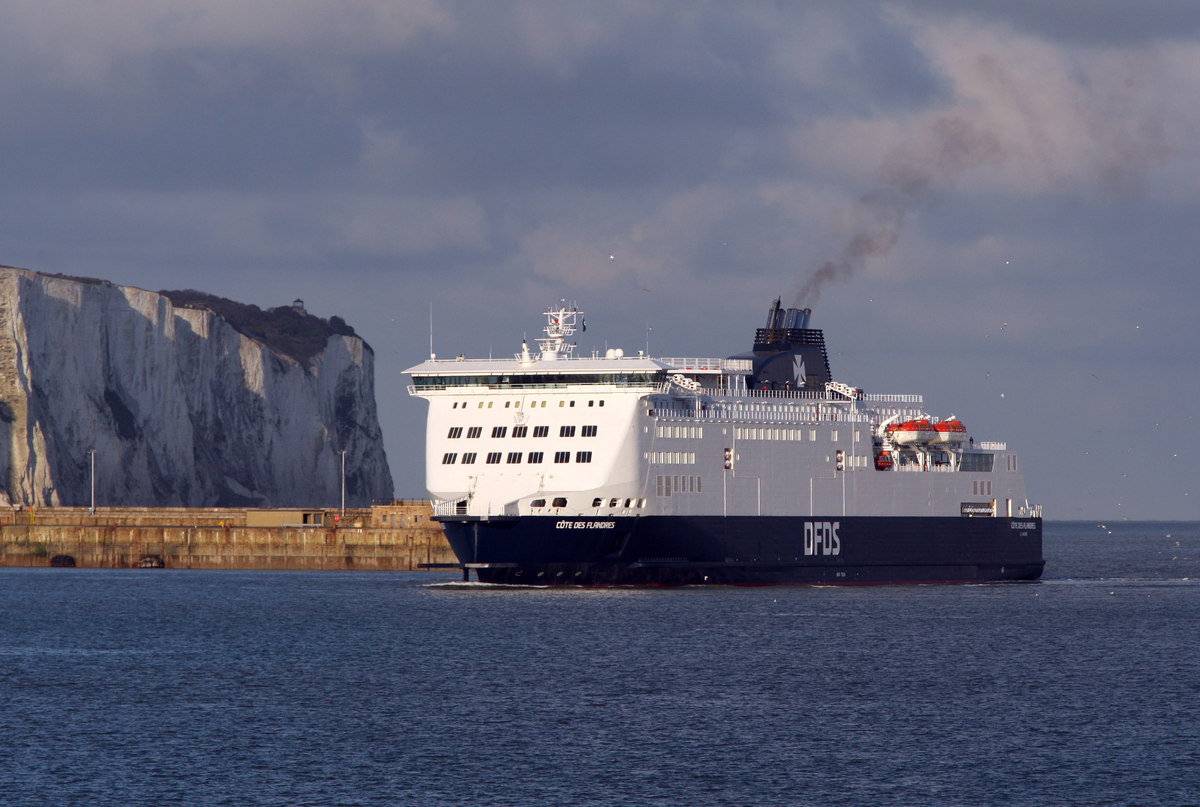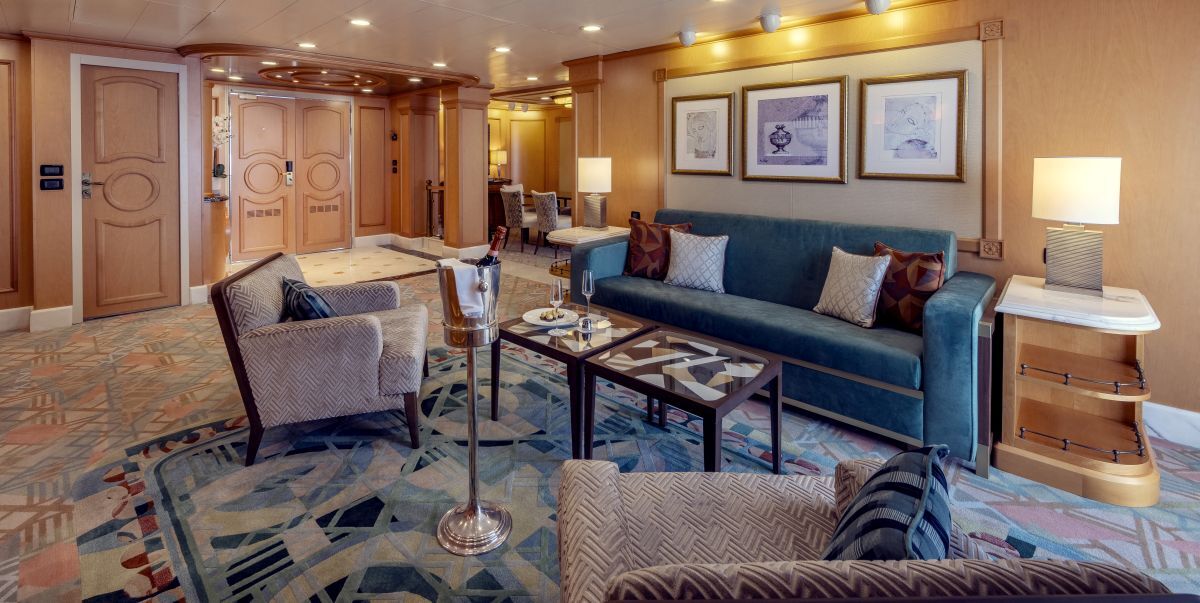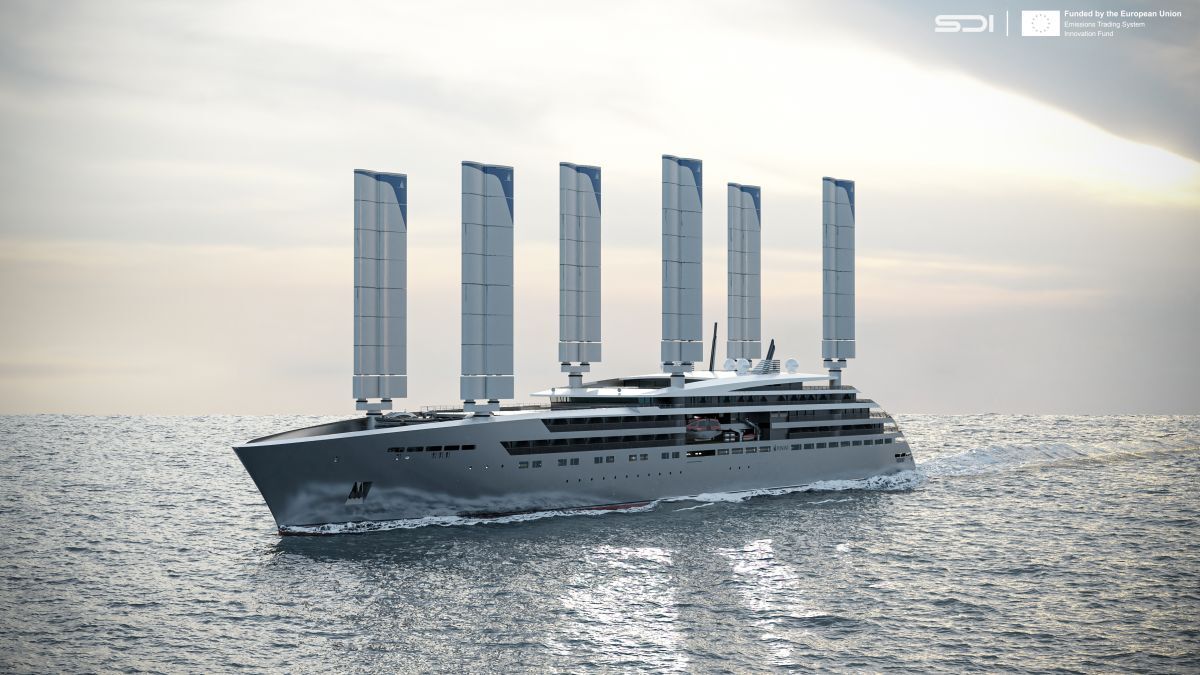Business Sectors
Events
Contents
Looking for a one-stop-shop for your ship?
THE vast logistics activities that underpin the passenger ship industry are undergoing profound change as the disparate, local networks that previously used to service particular vessels in particular geographic areas are being replaced by global service arrangements among major freight and logistics providers and cruise shipping lines.
“What has become clear over the past year or so is that we are targeting the work carried out by port and shipping agents that currently supply cruise lines, and bringing the expertise we have gained in the logistics field to this industry,” said Stuart Innes, the UK managing director of logistics provider Geodis Wilson.
“In the past, the replenishment of cruise ships was very much done on a port-by-port basis, with lines contracting with individual agents in the ports to supply the vessels when they called at the ports – arrangements that had been in place for as long as the lines were calling at the ports. But this is changing as management of lines has begun to focus more on cost and the procurement of supplies and services. And as Geodis Wilson and some of our competitors in the logistics industry have entered this sector, some of the agents at the larger ports that have developed global networks have been coming the other way: building on longstanding agency relationships to acquire multi-port contracts. It is very interesting because both sides are watching what the other is doing.”
Moves by cruise operators show that they have begun to look at stripping costs out of their supply chains as a way of reducing overall expenditure, as they try to mitigate further possible pressure on revenues following the economic troubles in North America and Europe. Last September, Royal Caribbean chief financial officer Brian Rice saw supply chain added to his list of responsibilities as the line sought to radically control costs.
In an interview with The Wall St Journal shortly after the company announced his appointment, Mr Rice revealed that in some cases engineers on its vessels “sometimes need to take photographs of ship parts that need to be replaced and email them to the mainland because they can’t find the required part in the computer systems”. As a result, he said, the company would be considering investments in its IT systems.
Traditionally, cruise lines have focused their competitive energies on the design of their vessels and the cruise schedules: the effort has gone into providing a better customer experience than rivals, while there has been far less focus on maximising supply chain efficiency. This is understandable. As Royal Caribbean experienced growth rates of around 10 per cent over the past couple of decades, there was far less focus on cost and localised, fragmented supply chains developed.
But third-party logistics providers (3PLs) argue that rather than cruise lines investing in expensive IT systems, they should look to tender out their supply chains to 3PLs that have already developed highly sophisticated inventory management and replenishment systems.
Sergio Herrero, the recently appointed vertical market director of the marine logistics division at Geodis Wilson, said that one of the most important lessons the cruise industry can learn is from recent advances made in the perishable retail sector. “I call it the supermarket concept,” he said, “whereby every item that is loaded onto a vessel is barcode-scanned. On a cruise ship that amounts to hundreds of thousands of items. When the items are taken from the stores they are scanned again, which is linked up with a central management system so that there is granular control of the inventory on a vessel.”
By using 3PLs that employ that type of system, he argued, cruise vessels are able to pre-order supplies that may be running low long before they run out. That way, they could make large savings on their procurement spend by buying stores in larger volumes, reaping economies of scale.
Mr Herrero was recruited from US 3PL UTi Worldwide, where he served as client relations manager for its cruise line logistics division for a number of years. With his recruitment, Geodis Wilson was able to embark on the next phase of its expansion into the marine logistics division with the creation of a ‘control tower’ in Hamburg dedicated to ship logistics. While the group’s cruise logistics team has been headquartered in Miami, the Hamburg development allows it to offer the European cruise industry a similar scale of service, while also giving it an opportunity to service the container and dry bulk industries that have concentrated in the German port.
Mr Herrero says that the application of advanced inventory management has taken Geodis beyond the traditional 3PL model. “Essentially we have a 4PL approach to marine supplies. We prioritise visibility throughout the supply chain, including vendor performance. Of course we need the capacity to deliver everything from emergency individual parts to high-volume consumables, but we always emphasise low inventory costs and a high degree of synergy to increase efficiency for our customers. To achieve these aims effective information flow and data analysis is essential. This is the function of our control towers,” he adds.
One of the Hamburg team’s first jobs was the refitting of Crystal Cruises’ Crystal Serenity and Crystal Symphony at the Blohm & Voss drydock facility in June last year.
Geodis Wilson is of course not the only 3PL to have targeted the cruise industry. Swiss company Kuehne + Nagel, the world’s largest 3PL, has developed its cruise line logistics solutions division, which was a natural extension of its services to the hotel and catering industries. The company is the world’s largest 3PL and has also established a global centre of excellence for the industry in Miami, run by Cruise Line Solutions director Chris Kathke, who also emphasises the importance of visibility through technology platforms.
“Our order management system allows for the highest degree of visibility and effective vendor management, resulting in improved forecast accuracy and a significant reduction of internal administrational overheads. Our strong network ensures a fast and very competitive supply chain,” he said.
As the cruise industry grows into new areas, particularly the burgeoning Chinese market and others in Asia, a global approach to the supply chains underpinning the industry is expected to become even more important.
Energy efficiency focus and new laws boost ship management outsourcing
The drive to increase energy efficiency on cruise ships and the tighter legal framework in which they are operating are among the reasons why there has been an increase in the outsourcing of services on these vessels to third party ship management companies.
“We are seeing more interest in some specific services from the larger cruise ship operators, such as in energy management. We provide consultancy in this area and can assist in helping operators optimise their fuel consumption,” V.Ships Leisure SAM commercial director Per Bjornsen said.
He added that the trend for small- to medium-sized cruise operators to outsource services was growing as it meant they could benefit from economies of scale.
Meanwhile Columbia Shipmanagement deputy director of insurance and marketing Andreas Andreou singled out current regulation as driving the growth in outsourcing services to ship management companies: “The legal framework in general, and in particular the multitude of international rules and regulations in which cruise operators have to operate these days, dictates the outsourcing of those areas that could alleviate the burden on one side, and give them more time to concentrate on those issues that they are experts in: the operational and cruising side.”
He said that by outsourcing technical and crew management to third party managers, the cruise operator only has to deal with one entity, rather than a number of other authorities such as flag administration and class societies etc.
Some of the services that Columbia offers range from crewing, such as recruitment, evaluating crew and handling crew claims, to the technical side, such as the purchasing of parts, supervising refits and conversions and insurance placements.
V.Ships is currently working with cruise operators including Australia-based Orion Expedition Cruises, for which it is providing technical management and hotel recruitment, and Phoenix Reisen. The relationship with the latter started 20 years ago when V.Ships managed a vessel that Phoenix Reisen chartered. The ship operator acquired the vessel and started deploying V.Ships for technical and crew management. PST
Related to this Story
Events
Maritime Environmental Protection Webinar Week
Cyber & Vessel Security Webinar Week
The illusion of safety: what we're getting wrong about crews, tech, and fatigue
Responsible Ship Recycling Forum 2025
© 2024 Riviera Maritime Media Ltd.

